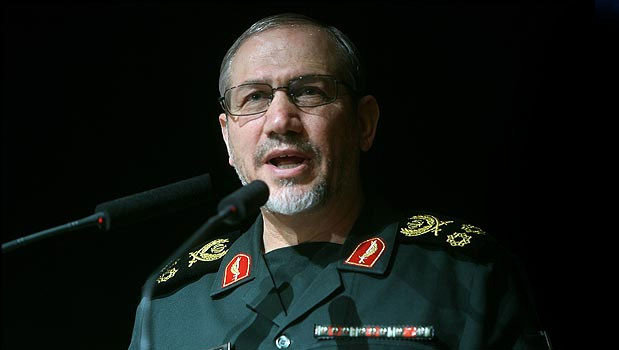Ex-IRGC chief: Iran should not intensify tension with Saudis

TEHRAN – A senior advisor to the Supreme Leader on military affairs has urged elevated relations with the three Arab countries of Oman, Kuwait, and even Qatar amid reservations over already tense ties with Saudi Arabia.
“We should increase our relations with Oman, Kuwait, and even Qatar while avoiding intensifying tension with Saudi Arabia,” said Yahya Rahim Safavi, ISNA reported on Tuesday.
Relations between Tehran and the Arab world have hit a low point over not only one but a list of disagreements.
After the storming of Saudi diplomatic posts in Tehran and Mashhad, itself a consequence of the execution of the top Shiite cleric and dozens more, Riyadh severed off ties with Tehran in January 2016.
Following the announcement, other Arab states downgraded ties with Iran.
Ever since then, tension between Tehran and Riyadh have deteriorated as the Arab country has increasingly appeared worried over Iran’s growing sphere of influence in the Middle East region particularly after it mended fences with world powers over its nuclear power.
“The Saudis are incensed by Iran’s increasing geopolitical weight and blame on Iran their failures in Syria, Iraq, Lebanon, and even in Yemen,” said Rahim Safavi.
But motivated by whatsoever, Iran should show toleration and patience as Saudi Arabia favors a tumultuous situation, the military advisor said.
“I do think they (the Saudis) want to have strained relations with Iran and we should avoid escalating tensions as we have the Persian Gulf’s peace, security, and the superior power.”
While the former IRGC chief supports a policy of toleration toward Saudi Arabia, there are strong signs which say toleration does not always work.
As a reality check against the policy, the Saudis have increasingly grown emboldened even after 464 Iranian nationals lost their lives during a hajj stampede in Mina in September 2015.
Not only have Saudis not paid any compensation to families of the Iranian victims, but also they have declined to shoulder responsibility for the incident, a behavior Iranian Foreign Minister Mohammad Javad Zarif linked to the Saudi “bigotry.”
It remains to be seen how the future of relations will be affected by the Syrian crisis, another vexing issue, now that there are increasing hopes for a long-term curfew in the country.
AK/PA
Leave a Comment